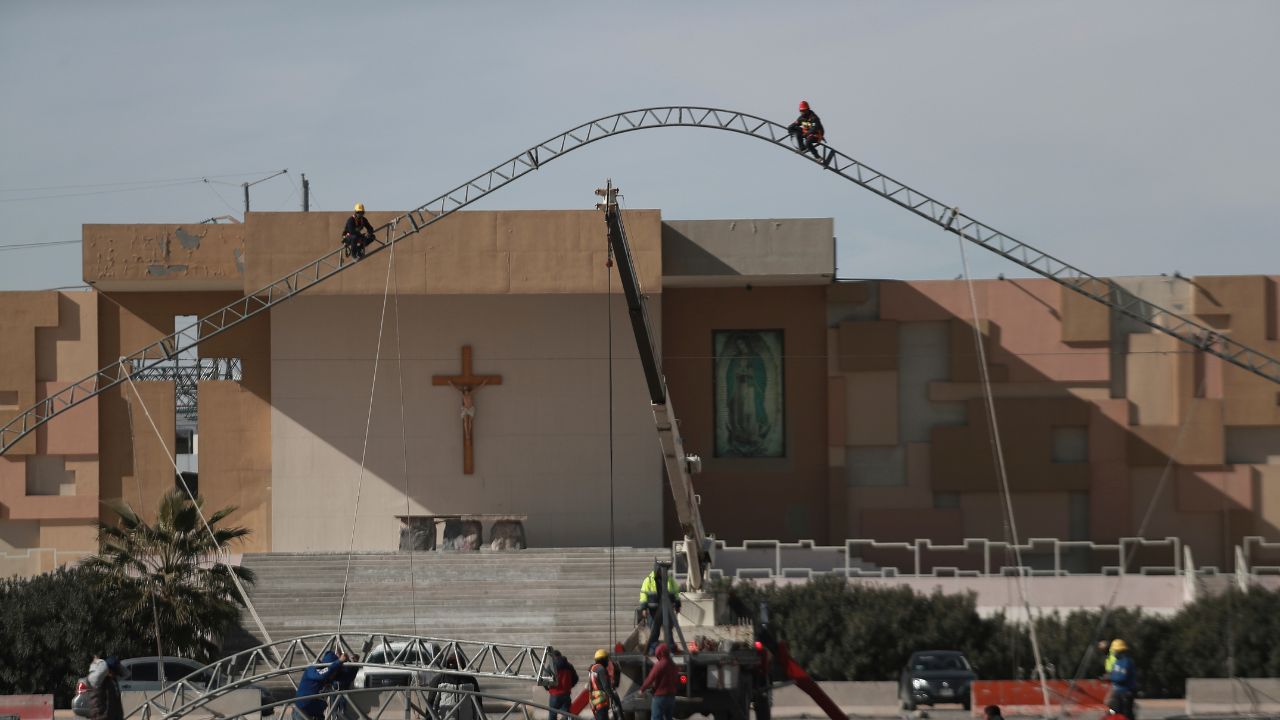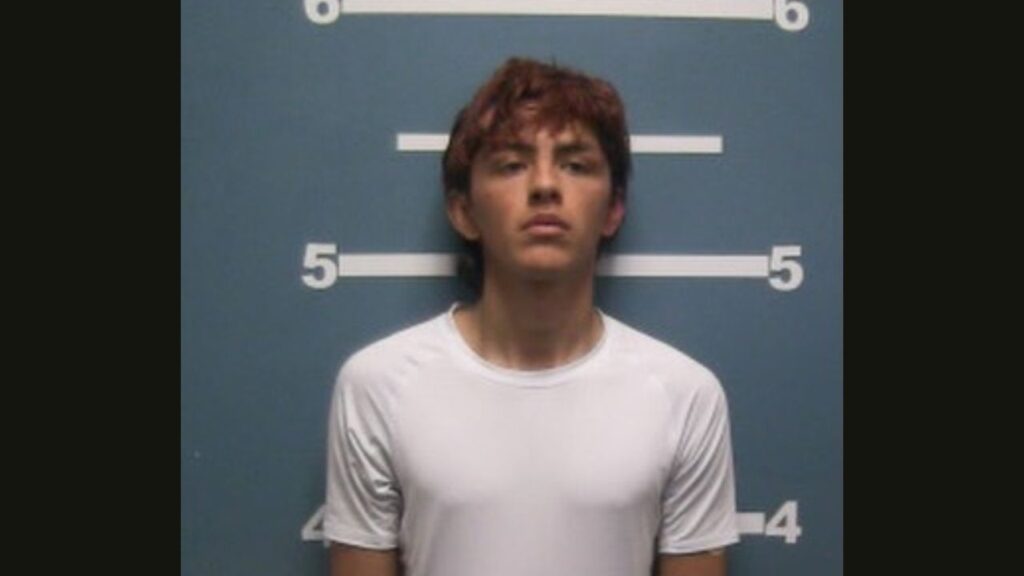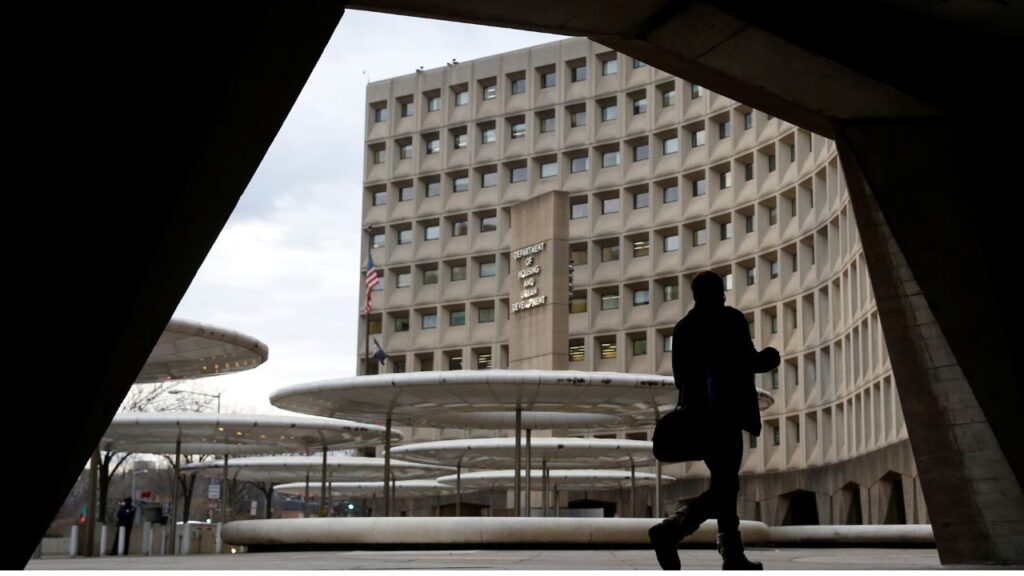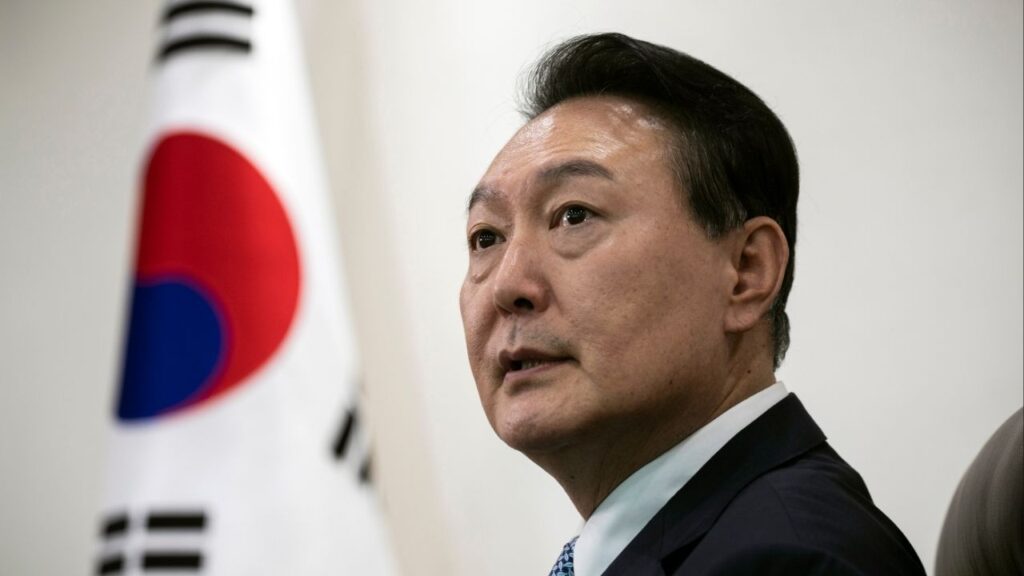Workers begin the installation of a temporary shelter for possible deportees from the United States, in Ciudad Juarez, Mexico, Wednesday, Jan. 22, 2025. (AP/Christian Chavez)

- Mexico sets up tents and shelters along the U.S. border as it prepares for President Trump's mass deportation plans.
- Mexican shelters brace for increased deportees as Trump ends CBP One program; daily deportations lower than average.
- Ciudad Juárez shelters face logistical strains amid Trump’s promised deportations, with limited budgets and rising numbers.
Share
|
Getting your Trinity Audio player ready...
|
CIUDAD JUÁREZ, Mexico — Mexico raised sprawling tents on the U.S. border Wednesday as it braced for President Donald Trump to fulfill his pledge to reverse mass migration.
In an empty lot tight against the border with El Paso, Texas, cranes lifted metal frames for tent shelters in Ciudad Juárez. Nogales, Mexico — across from Nogales, Arizona — announced that it would build shelters on soccer fields and in a gymnasium. The border cities of Matamoros and Piedras Negras have launched similar efforts.
At a border crossing in Tijuana, Mexico, on Tuesday night, one man shouted to journalists that he was being deported in a group that was arrested that morning in farm fields near Denver. Another man said he was in a group that had been brought from Oregon. Everyone carried their belongings in a small orange bag.
Neither man’s account could be independently confirmed.
Related Story: Immigrant Parents Weigh the Risk of Sending Children to School After Trump ...
Number of People Deported Tuesday Is Lower Than Daily Average
The number of people deported Tuesday was lower than the daily average of about 500 last year, Mexican President Claudia Sheinbaum noted at her daily press briefing. Quickly ramping up deportations — as Trump pledges — faces logistical and financial challenges.
Beyond the tents, the Mexican government is building nine shelters in border cities to receive deportees. It has said that it would also use existing facilities in Tijuana, Ciudad Juarez and Matamoros, to take in migrants whose appointments to request asylum in the U.S. were canceled on Inauguration Day.
Sheinbaum has said that Mexico will give humanitarian aid to migrants from other countries whose asylum appointments were cancelled, as well as those sent to wait in her nation under the revived policy known as Remain in Mexico. Mexico wants to eventually and voluntarily return them to their nations, she has said.
Related Story: Trump Administration Shuts Down White House Spanish-Language Page and Social ...
Mexican Foreign Affairs Secretary Juan Ramón de la Fuente and new U.S. Secretary of State Marco Rubio held their first telephone conversation in their new positions.
“It was a very good conversation, very cordial, they talked about migration and security issues,” Sheinbaum said.
After pledging to dramatically shift border and immigration policies, on Monday Trump scrapped the program known as CBP One that allowed asylum seekers to schedule appointments on their phones before arriving at the border, providing a degree of order. On Wednesday, the Pentagon announced it was sending up to 1,500 active-duty troops to the border.
Shelters Prepare for Changes
At the Good Samaritan shelter in Ciudad Juarez, the Rev. Juan Fierro was preparing for yet another change.
In recent years he has seen the shelter’s population change from young men crossing a wall-less border for work to families seeking asylum. During Trump’s first term, the policy of making asylum seekers wait out the U.S. process in Mexico meant that people stayed at the shelter much longer, up to three years, Fierro said.
Related Story: Trump Administration Cancels Travel for Refugees Already Cleared to Resettle in ...
Now he’s getting ready for Trump’s promised mass deportations. His shelter fits 180 people and can feed around 50, he said. With much lower migration numbers over the past year, he only had a fraction of that number this week and is worried about an expected rise.
“This shelter doesn’t have the budget, we’re practically day to day,” Fierro said.
The Mexican government will bus some deportees to their homes in Mexico’s interior. Fierro said he’ll give deportees a couple of months to think about whether to return home, look for work in another Mexican state or try to re-enter the U.S.
“The people who want to make it to the United States are going to look for the way to do it,” he said.
RELATED TOPICS:
Categories



















